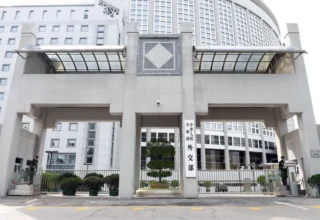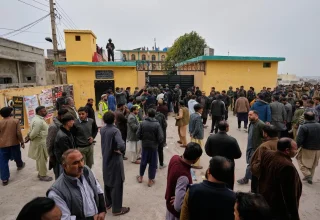
The Sindh High Court has dismissed a petition filed by lawyers challenging proposed constitutional amendments, stating that the court cannot intervene in a matter that has yet to be finalized.
During the hearing, Chief Justice Muhammad Shafi Siddiqui remarked that the amendments have not even been passed yet, so the judiciary has no grounds to interfere. He emphasized that elected representatives in the National Assembly, acting on behalf of the country’s 240 million citizens, are responsible for legislating.
“How can the court intervene when there is no amendment yet?” the chief justice asked, stressing that it is premature to question the legality of the proposal. “How can we determine before the amendment whether it is in accordance with the law or not?”
The petition, filed by Ghulam Rehman Korai and others, sought judicial review of the proposed 26th constitutional amendment. The lawyers argued for the court’s intervention, calling for the draft amendment to be presented before Bar Councils and Bar Associations for review before it is debated in the assembly.
Chief Justice Siddiqui, however, firmly rejected this stance, questioning the legal basis for such a request. He further criticized the petitioners for disregarding the Supreme Court’s ruling on the Practice and Procedure Act, in which a 15-member bench set guidelines for how the judiciary handles amendments and legislative procedures.
“Despite reading the Supreme Court’s judgment, you dared to file such an application,” the chief justice said, remarking that poorly drafted applications with only three or four lines are submitted in court and the next day they appear in the newspapers.
“Under which law should the court order to submit the draft before bar councils and bar associations?” the CJ asked further.
The court ultimately ruled that it could not oppose the decision of the Supreme Court, and rejected the petition on the grounds of its premature nature and lack of legal merit.













































